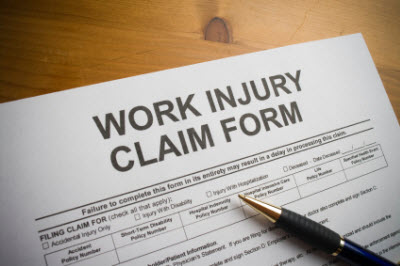Insurance For SEO's

Insurance is a popular, profitable area for some SEO's. Trying to find reputable insurance for an SEO business is not so popular because many insurance agents do not have the experience to make the distinction between what a web design shop does versus what an SEO or PPC business does.
Prior to entering this business I was an insurance agent and before that I was an underwriter and I still have my agent license (hey, you never know!!). There are policies out there which SEO's should consider purchasing as well as any web design or development shop.
There are a few different policies you might want to consider in this industry:
- General Liability
- Professional Liability (Errors and Omissions)
- Workers Compensation (if you have employees)
- Short-Term and Long-Term Disability
As a business owner, you will have or not have the following conditions:
- employees
- office space
- equipment
- office space where you conduct business with clients and vendors
Workers Comp and STD/LTD

Workers Compensations and STD/LTD are fairly general insurance policies with respect to the policies not really being specific to the SEO business. Here in the US, Workers Comp is administered on the state level. Workers Comp is required in certain situations, depending on your state, so it is wise to check with your attorney and insurance agency regarding what is appropriate for you.
While you only have to worry about Workers Comp if you have employees (actual employees hired and placed on payroll not contracted labor or freelance arrangements) you should consider Short Term and/or Long Term Disability insurance even if you're a solo SEO.
Short Term and Long Term Disability
If you are coming from corporate America you likely had these policies under a group plan (which is why it's so cheap). Essentially, it breaks down as follows:
- Coverage responds if you are injured and unable to work (this doesn't cover sick time and generally excludes maternity coverage)
- Short Term Disability will cover you for a certain period of time (usually under 90 days) at 100% of your pre-tax (sometimes you can choose post-tax) income.
- Long Term Disability kicks in either after Short Term has expired or if you decided not to purchase Short Term at all.
- Long Term will typically cover you at 60% or so of pre-tax (or post-tax if you are given the choice) for an extended period of time.
Wages are usually determined based on your prior year's tax return in conjunction with a current Profit/Loss statement (another reason why you should report all your income!).
Sometimes it makes more sense to get a quote on LTD (as it's cheaper) and just build up a reserve of your own to cover what Short Term Disability would have covered (rather than spending money on premiums and losing it if you never file a claim).
If you advance a claim for either, there usually is a waiting period of a few weeks to a few months while a case manager is assigned to investigate the claim.
Be prepared to get put under the microscope much more than you would if you were part of a large group plan (if you work for a large company as an example) as you are no longer part of a protected herd, but this is where using an independent agent can be help in fending off the overzealous claims adjuster who might see you as an easy case :)
Different policies have different exclusions so it's wise to discuss all your extracurricular activities with your agent as things like sky-diving are usually not covered causes of injury.
General Liability
This is one of the most common forms of business insurance. The meat of what this type of policy provides is:
- Bodily Injury and Property Damage
- Defense Costs while defending a suit
- Personal Injury
- Medical Expenses
- Operations Liability
Most of this coverage is applicable when/if some of the following conditions occur:
- Client is injured on your premises
- Damages to property you are renting to other businesses
- Advertising mishaps (slander, libel, copyright infringement, etc)
- Injuries sustained by others on your defined premises due to the activities and operations of your business
Combining GL with Property Insurance (BOP Policies)
Many times, a GL policy is combined with Property Insurance to make what is called a BOP or business owners policy (BOP package).
Property Insurance is fairly standard and covers things like:
- Inventory
- Equipment (probably computers for most of us)
- Records and Documents
- Buildings
- Other Real and Personal Property
- Lost income due to a covered loss
A BOP is really geared towards business which have an office building, equipment in that office, meet clients on the premises, or rent out space to others.
Neither of these, or the BOP package, cover Workers Comp. A BOP is a good solution for a shop which has a physical location, clients on site, and has inventory/equipment on premises.
Professional Liability & Specialized Insurance

These types of policies is where a chunk of the specialized coverage for an SEO would come from. A BOP policy is meant to cover "products" with respect to liability so as an SEO, web designer, or web developer you'll need more specialized coverage which covers things like:
- Data Storage
- Malicious Code (say your Wordpress site gets hacked and distributes malware or keyloggers)
- Hosting
- Loss of business income (say your host goes down and your client's e-commerce site goes offline, or it goes offline due to an error on your end)
- Data security
Depending on your level of involvement with servers, software, and application development you may want to scale up and get a more specialized policy. Lots of larger insurers sell specialized, broad polices under the name of Technology Insurance or Information Technology Insurance.
Over the years these policies have developed to cover more and more specialized areas of tech insurance. In the beginning they were mostly geared towards straight IT companies but now cover all sorts of tech groups like:
- Web Designers
- Web Developers
- Consultants
- Outsourced Applications
- Hosting Services
Be Up-front
Our industry is no different than any other, lots of snakes. If you are engaging in some kind of off the wall activity you really need to tell the agent. Tell them exactly what you do, if you are doing things that your state or other states consider illegal (fake reviews for instance) then don't expect your policy to respond to such things.
It's no different than getting a homeowners policy while saying you don't have a Pit Bull, even though you have a Pit Bull (which are excluded by all standard insurers), then expecting coverage when your Pit Bull bites the neighbor.
While the agent may not understand the nuances of the business, you are typically good to go if you take the time to fill out the application completely and accurately.
Why Use a Local, Independent Agent?

Most folks you get in the call centers of GEICO or Progressive are salaried or hourly employees, they don't live in your community, and they really don't care to get you the best deal (they can only give your theirs).
Having a local agent gives you access to more markets, someone close by to help you fight any injustices the carrier may try to perpetrate on you, someone who is making a living selling policies in a local market (less likely to burn you as they care about their reputation), and someone who can help insure all your personal and business needs.
A call center rep, if they are on commission, generally wants to churn and burn through the calls and probably won't meet with you face to face to go over anything and answer all your questions (or get answers). Plus, most local agencies need help with web marketing so it could be an easy in for you!
What Do You Need?
Scenario 1 (Work from home, no employees)
Get a business endorsement on your personal homeowners policies and schedule your equipment if you need to (might not need to if you have warranties in place already). This will also make your home office deduction look more official to the IRS.
Get a Professional Liability (E&O) policy and look into a specialized Technology policy depending on your business model. Consider STD/LTD insurance for lost wages if you can't work.
Scenario 2 (Home office, external office, no employees)
Same as above but add in a BOP (General Liability and Property Package) which is probably required if you are renting office space anyway.
Scenario 3 (Home office, external office, employees)
You should check with your attorney about how you are defining employees and if that means they are actual employees versus free-lancers or contractors.
You would want to look at a BOP, Professional Liability and/or specialized Tech Insurance, and Workers Comp if required as well as employee benefit/insurance packages for things like STD/LTD.
Insurance is Boring
Yes it's boring but it's worthwhile for most of us from a cost/benefit standpoint (or legal liability standpoint). Solid, legal contracts reviewed by attorney's are also HIGHLY recommended.
Make time to sit with some local agents to really go over your business and your business activities. It's a really soft market right now for business insurance, especially small business, so agents are going to be more than happy to sit with you and go over what they have to offer.
Why Contracts are Important
There are many contracts available online, for free and for a fee. These contracts, even ones from places like LegalZoom have not been reviewed for your specific business by attorneys in your state.
A contract is no good if it's not enforceable. You can probably expect a fee for a good attorney to review your contracts, and make any necessary changes, to be in the high hundreds of dollars or low four figures.
There is a cost certainty to the cost for an attorney to give you the green light on a set of contracts (though, for really big deals you might still be wise to get a contract specific to that deal) but there is no cost certainty to the legal liability you could face if your contracts are essentially worthless in a court of law.
Another thing you'll want to watch out for is a client who tries to give you unlimited downside from a liability standpoint (in the contract) but severely limits the upside to your fees. You might be willing to take on the risk of downside so long as you are getting a decent %, or a few % points, of the upside on the deal. This is another case where an attorney reviewing the contracts can be well worth the cost.
Choosing the Right Business Entity
Your insurance policy is mutually exclusive from your business entity. If you are a sole-proprietor your personal assets are at risk even though your insurance policy covers defense costs. Choosing the right entity is another way to insulate yourself from liability.
In most states a single member LLC up to a full-blown corporation (and everything in between like a multi-member LLC, S-corp, and so on) will insulate your personal assets (home, savings, future personal earnings) from legal liability, whereas a sole proprietorship will leave your personal assets exposed.
The combination of a good insurance policy and the right business entity will cover defense costs (on a covered event) and protect your personal assets. Choosing the wrong set up can be financially disastrous.
The policy will cover defense costs if a claim is covered but if it is a frivolous lawsuit, or something personal, you might have to defend yourself. This is where having the right entity is key because your personal assets are not at risk even though you are probably going to incur your own legal costs.
The best way to protect yourself is to insure and to pick either an LLC or a corporation of some kind. Choosing neither, or one but not the other, can leave you and your business significantly exposed to liability.




Comments
Following up on that last point, I have an old post dispelling a common myth, i.e. that an LLC somehow shields you from all possible liability. An LLC can shield you from contractual liability (if you use it correctly), but it doesn't protect you from tort liability for your own conduct: http://bit.ly/bp0mrM
Short point is like you said: set up an LLC (and use it properly) and buy adequate insurance. You'll rest easy, and, if you happen to need either, you'll rest a lot more easily.
We are talking about business insurance and liability here, not a personal tort like me driving under the influence and killing someone (clearly the LLC would not provide protection there).
However...when it comes to the financial/legal obligations of the LLC, which is what the member is acting on behalf of when instituting an SEO campaign (as an example) there is absolute protection available to the member's personal assets (I've been over this numerous times with multiple attorney's in my state).
"We are talking about business insurance and liability here, not a personal tort like me driving under the influence and killing someone (clearly the LLC would not provide protection there)."
The legal distinction isn't between business and personal but between contract and tort. If you use an LLC and contract through the LLC, then only the LLC remains liable in contract. However, even if you use the LLC for your business, if a client sues you for a tort (e.g., alleging you defrauded them), then you're personally liable, even if you properly used the LLC. Same goes for lawsuits by non-clients; if your client's competitor sues you for trademark infringement, they can hold you personally liable -- even if you did all your business through the LLC -- just the same, because it's a "personal tort" against you.
Point is, like you wrote, to get insurance and lots of it. Plaintiff's lawyers tend to file suits with the aim of hitting insurance policies and of creating the possibility of personal liability, since it encourages the insurance company to settle and avoid a bad faith claim down the road. Be protected against all possibilities.
So what you're saying is that I can have insurance covering me against a case where, let's say for example, I did an SEO campaign for a client and all of a sudden his rakings / revenues dried up and he decided to sue me for the loss of revenue / damage of their properties...?
This is very interesting and definitely something I have never looked into, I always figured this is something I handle with my lawyer and ensure that the signed contract takes care of such issues... but looks like there are other measures that can be taken.
I'm very curious though, let's say we're talking about Scenario 2, could you give me a very rough idea / estimate of how much a suitable insurance policy would cost and how much liability it would cover?
So the insurance would be helpful in your scenario for, if nothing else, the attorney fees associated with answering the suit. But let's talk about Scenario 2 first:
You'd be looking at a BOP (General Liability and Property) for the external office and you'd want to endorse your homeowners policy to have some level of coverage for the home office as well (sometimes you might bring laptops back and forth or have equipment not tied to a specific location so have both coverages is usually a good idea). A basic BOP is probably going to run you at or less than 500$ per year on a smaller office.
A smaller professional liability policy probably around 1k a year. Professional liability, at that level, would likely cover you from 1 mill - 3 mill depending on the policy (you can go higher).
So in the case of an SEO campaign, this is where ironclad contracts come in. Many insurance policies provide protection for actual products (software stuff, web hosting, data storage, and so on) so SEO campaigns are hard.
Make sure your contracts specifically spell out the risks of an SEO campaign and that you might be doing things where a 3rd party like Google can make arbitrary changes (behind the walled garden of their algo) w/out you knowing which can significantly impact the business.
Make no guarantees, be upfront about the risks, clearly spell out all of this in the contract and make the client initial each page. The thing to keep in mind with liability suits is that you always want to act in good faith. Always keep the client updated, never lie, kiss their ass, go above and beyond, and do everything you can to resolve the issue within your ability to do so. This is more difficult with something as abstract as an SEO campaign and its metrics versus something as easy as being a web host and dealing with downtime. This is where ironclad contracts, proper business entity selection, and proper insurance coverages helps create a 3 pronged defense to any kind of claim or suit.
Solid advice, luckily, unlike with many other things, I didn't have to learn this the hardway ;)
Add new comment